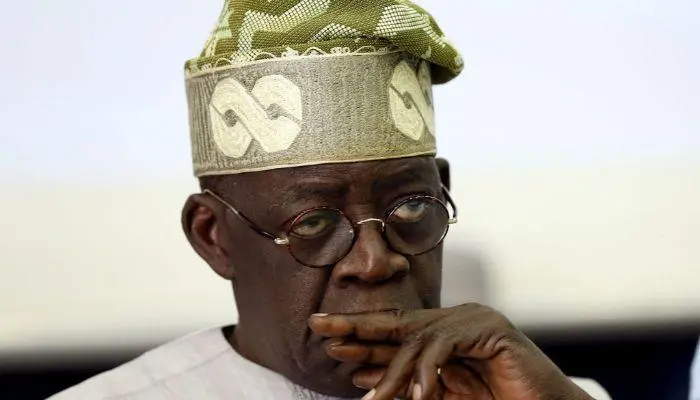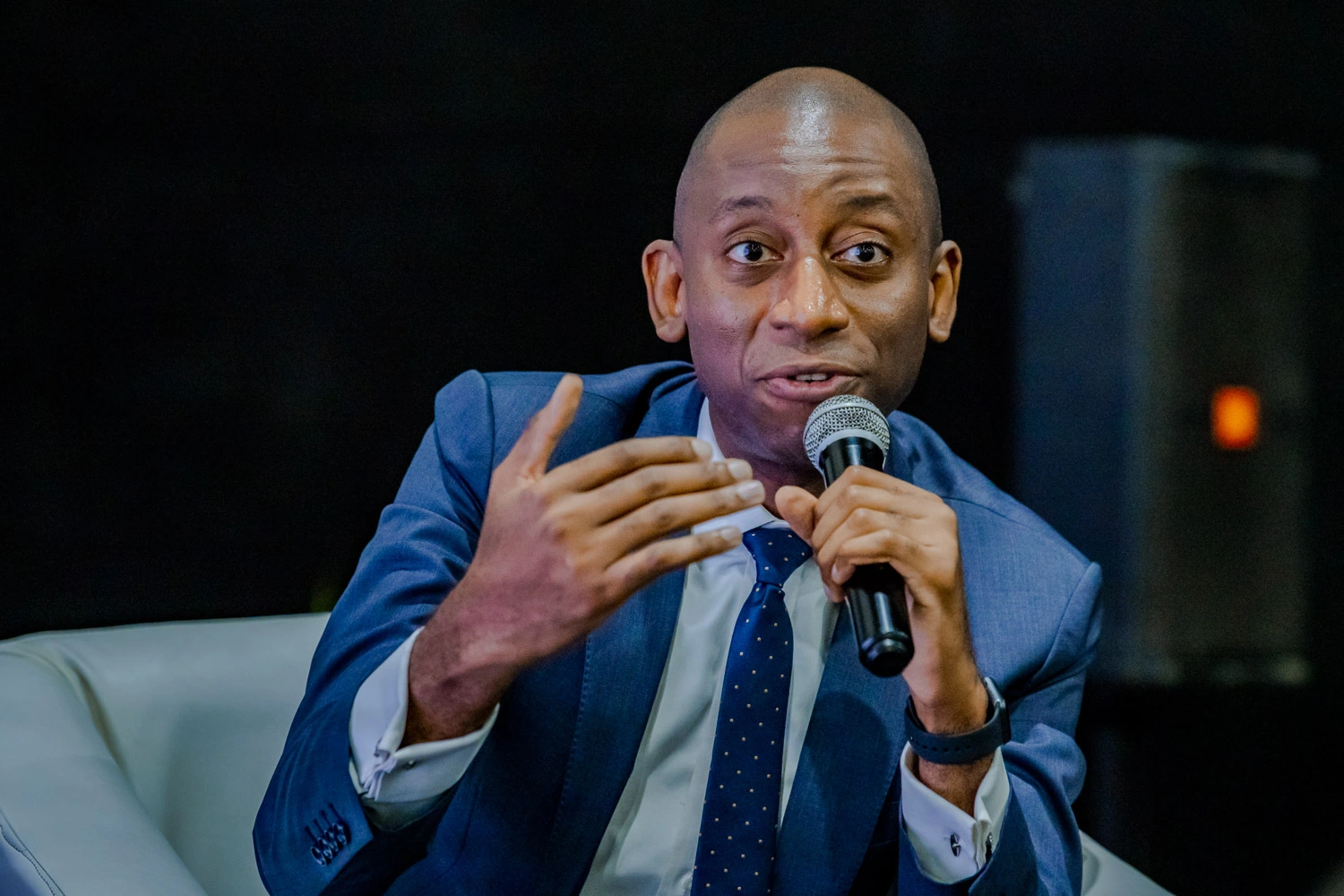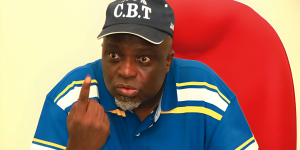As President Tinubu assembles his cabinet, some stakeholders in Nigeria’s tech ecosystem are being considered for key positions.
Four stakeholders in Nigeria’s tech ecosystem are being considered for key positions in President Tinubu’s administration, TechCabal can exclusively report. Bosun Tijani, Oswald Osaretin Guobadia, Olumide Soyombo, and Idris Alubankudi Saliu are reportedly among those who were considered for key positions—including a ministerial seat—in the Tinubu administration.
While the comprehensive list is yet to be finalised, two sources close to the presidency have confirmed that these individuals have been considered for key roles at the federal level. “I can’t guarantee they will get it, but they’ve all been considered for the ministerial role. It’s possible they get other roles too,” an anonymous source shared.
These four individuals have, at scale, demonstrated enterprising leadership in technology-related projects and earned repute within the African tech ecosystem. While it remains uncertain how their candidacies will shape the final composition of Tinubu’s list, their standing as technocrats holds promise for Nigerians who have long advocated for the appointment of industry-specific experts into key roles.
Let’s take a closer look at their lives and work.
Bosun Tijani
Bosun Tijani is the CEO and co-founder of CcHub, one of Africa’s leading technology hubs. He has led the expansion of CcHub across Nigeria, Kenya, and more recently, Namibia. From its humble beginnings in Yaba, CcHub has grown to become a significant catalyst of tech advancement in Africa by empowering young people with the tools, communities and capital they need to launch impactful ventures. CcHub hosted Meta’s Mark Zuckerberg in 2016.
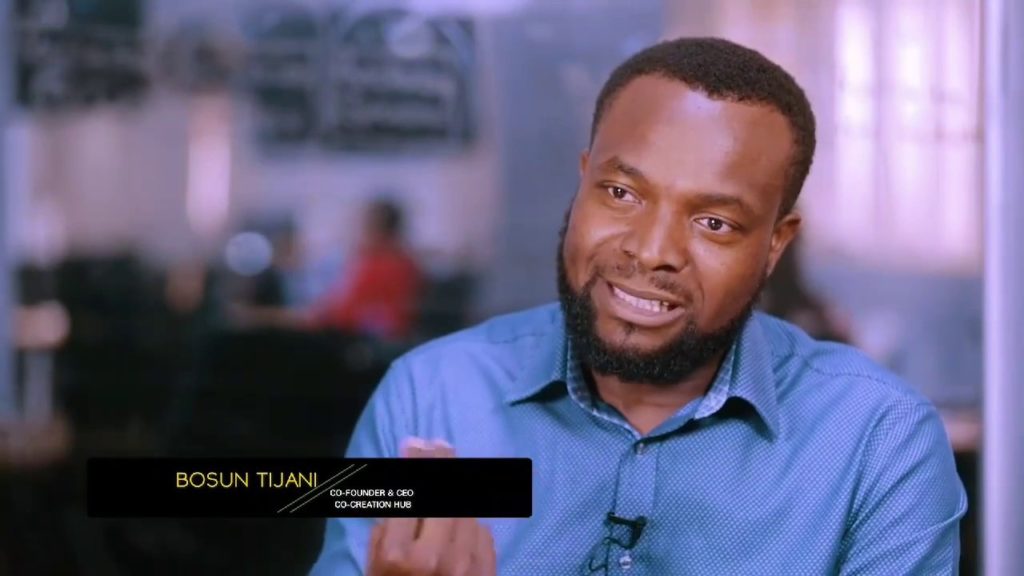
Tijani holds two degrees from the University of Jos, Nigeria: a Bsc. in Economics and a Diploma in Computer Science. He subsequently obtained an MSc. in Information Systems and Management from the Warwick Business School in England. In March this year, Tijani completed a PhD program in Innovation and Economic Development at the University of Leicester.
Bosun Tijani describes himself as an advocate of social change, a title best captured by his work at CcHub. With a billion naira growth fund, CcHub has committed to impacting over 95 early-stage businesses including those bringing innovation to Africa’s education and healthcare systems. In 2017, New Africa Magazine named Tijani as one of the 100 most influential people in Africa.
Oswald Osaretin Guobadia
Oswald Osaretin Guobadia was the Senior Special Adviser to Former President Muhammadu Buhari. In that role, he led the design and drafting of the Nigeria Startup Act (NSA), which to date remains one of the presidency’s most significant achievements for Nigeria’s tech ecosystem. He is also the co-founder of DBH, an African infrastructure and IT company that provides consultancy and specialised solutions in markets across the world.

Guobadia obtained a Bachelor’s degree in Biology from Wesley College and a Master’s degree in Telecommunications and Computer Science from PACE University, a private university in New York. Post-graduation, Guobadia’s last job in the US was a 5-year stint at global advisory firm Goldman Sachs, where he was VP and Project Manager.
In an earlier interview with Techcabal, Guobadia shared that he got into government with the ambition of making business easier in Nigeria. After holding top roles at UBA and Renaissance Capital, he transitioned into policy-making, where he led efforts in the drafting of the NSA, an act that seeks to improve the ease of doing business in Nigeria and attract foreign investments. The startup act has been lauded globally and concerted efforts are underway to domesticate the act across Nigeria’s 36 states. Although, domesticating the act across the states has had a significant tussle so far.
Guobadia held his role at DBH for over a decade, during which the company deployed banking infrastructure, trading floors, and tech solutions for government and corporate clients. This role placed Guobadia in relations with both private and public sectors, preparing him for the realities of leading a national policy drive.
Olumide Soyombo
Olumide Soyombo is an investment mogul in Nigeria. He is widely known as one of the earliest investors in Paystack, a pan-African payments company acquired by Stripe for $200 million. Beyond Paystack, Soyombo is described as one of Nigeria’s most prolific angel investors whose investments have shaped the evolution of the country’s technology ecosystem. In 2021, he launched Voltron Capital, an early-stage investment vehicle that has backed 48 startups in two years.
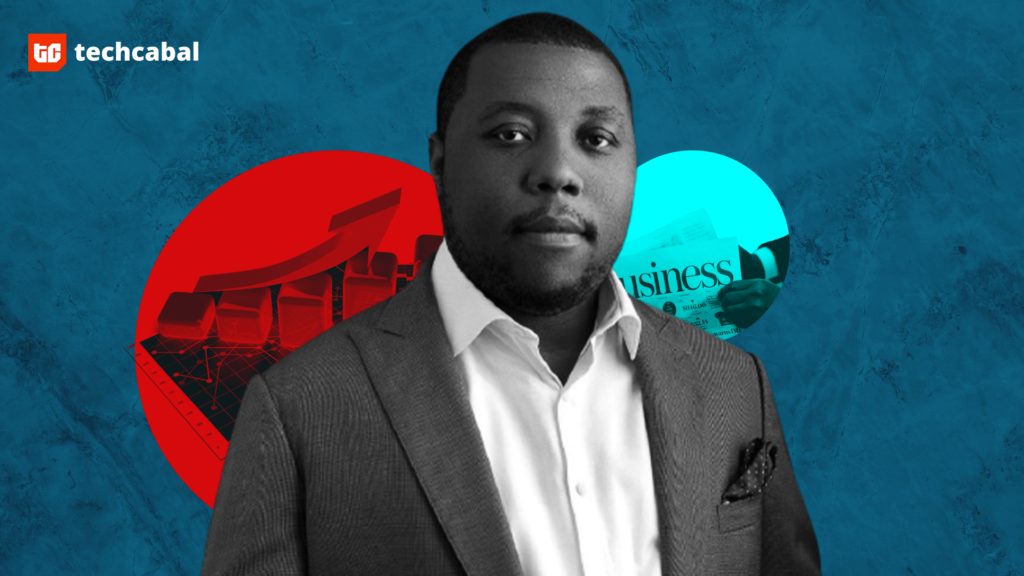
Soyombo holds a BSc. degree in systems engineering from the University of Lagos. In 2006, he obtained an MSc. in Business and Information Technology from Aston University, Birmingham. Soyombo returned to Nigeria after completing his studies to launch Bluechip Technologies, a startup that provides data housing and business intelligence solutions for businesses, including Microsoft and Oracle.
Soyombo’s BlueChip Technologies offers data solutions and enterprise-level tech consulting services to banks and businesses across the world. The business, which has been at the forefront of Africa’s data warehousing growth, expanded to Europe last year to provide solutions to businesses in the region.
Idris Alubankudi Saliu
Idris Alubankudi Saliu is a long-time entrepreneur, investor, and tech advocate in Nigeria. He is the former Chief Technology Officer (CTO) of Africa’s oldest unicorn, Interswitch Group. Saliu joined Interswitch through an acquisition. Vanso, his software and telecommunications company, which operated in Lagos, Capetown, and Wurzburg, Germany, was acquired by Interswitch for an undisclosed sum. Unconfirmed reports claim the exit was a dollar deal in six figures.

Saliu is a graduate of Columbia University, New York, where he obtained a BSc. in Computer Science. He is presently the co-founder of two fintech companies: Arca and UK-based Ceviant. Ceviant provides treasury and trade solutions for businesses across the globe. And has worked with mega-corporations like Dantata and Wakanow.
Saliu’s work in the Nigerian tech ecosystem spans over two decades, in which he has demonstrated deep expertise in telecommunications, payments, and scalable digital infrastructure.
Digital portfolios in the Tinubu government
Throughout his presidential campaign, Tinubu expressed lofty goals for Nigeria’s tech ecosystem, including expanding broadband penetration, implementing blockchain policy reforms, and creating one million new ICT jobs within a two-year timeframe. Achieving these ambitions requires the appointment of individuals who have proven industry-specific competence—as is reflected by the work of these aforementioned stakeholders. However, as previously maintained, they could be recommended for other digital positions within the government.
Technology brings efficiency, and, when optimised, can be the game-changer for any ministry. However, specific ministerial portfolios require digital technocrats. Some of these portfolios include the minister of communications and digital economy, minister of science and technology, minister of information and culture, minister of finance, and the minister of trade and investments.
The first two portfolios mentioned above play a crucial role in shaping a nation’s digital future, making them ideal fits for the experts discussed in this article. However, the ministry which oversees the development of science and tech holds broader responsibilities, including championing advancements in Nigeria’s life and physical sciences. This may translate into a wider selection pool for its minister.
What skills are needed for the job?
Ministries overseeing technology and the digital economy need leaders with experience driving large-scale technical projects—and working with technologies such as blockchain, AI, and cybersecurity systems. In Rwanda, a country that has gotten attention for its fast-improving business and tech ecosystem, the minister of information and communications technology is Paula Ingabire, an MIT graduate and pro-blockchain advocate. Paula attends the monthly meetings of the Rwanda Blockchain Community.
For Nigeria, which may be on the cusp of reshaping its love-hate relationship with blockchain technologies and crypto, evidenced by a new CBN leadership and a pro-blockchain presidency, a deeply informed expert is needed at the helm of affairs. The shoes will fit an experienced executor who can steer the country’s evolving relationship with modern technologies and pave the way for future growth and innovation.
Ministries tasked with overseeing trade and finance require leaders that understand how to leverage technology to optimise trade and finance at all levels. Nigeria’s financial inclusion and digital entrepreneurship strategies are mostly private sector-led and could do better with some ingenuity from the government. Nigeria also has huge potential for e-commerce, broadened by opportunities presented by the African Continental Free Trade Area (AfCFTA) and Pan African Payment and Settlement System (PAPSS). Here, a private-sector business veteran may be what the country needs, especially one with the “innovate and deploy fast” ethos of technology companies.
Several local publications have reported that Tinubu’s ministerial list will be shared this week, barring any last-minute changes. One thing is certain in all of this: the eventual appointees will have to pull their weight around their offices and bring necessary reforms to Nigerians—whether they are leaders in the tech ecosystem or not.









